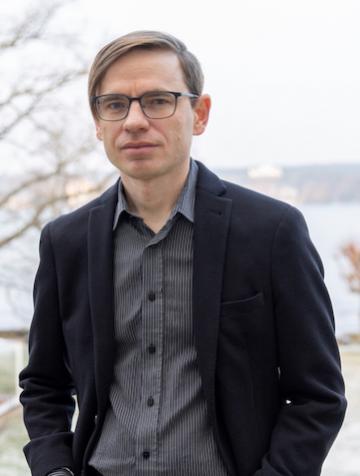Jared Farmer studies the histories of built and unbuilt environments from the hyperlocal to the planetary. His temporal expertise is the long nineteenth century; his regional expertise is the North American West.
At Penn, Prof. Farmer is affiliated with the History and Sociology of Science Graduate Group; the Religious Studies Graduate Group; and the Initiative in the History of the Built Environment at the Weitzman School of Design.
He has received fellowships and grants from institutions such as the American Council of Learned Societies, the National Humanities Center, the National Endowment for the Humanities, and the Alfred P. Sloan Foundation. In 2014, the Dallas Institute presented him the Hiett Prize in the Humanities; in 2017, the Carnegie Corporation of New York named him an Andrew Carnegie Fellow; and in 2018, the American Academy in Berlin awarded him a Berlin Prize. Farmer has been profiled in the Chronicle of Higher Education and the Pennsylvania Gazette.
His peer-reviewed essays include “Executive Domain: Military Reservations in the Wartime West,” in World War II and the West It Wrought (Stanford, 2020); “Taking Liberties with Historic Trees,” in the Journal of American History (March 2019); and “Technofossil,” in Future Remains: A Cabinet of Curiosities for the Anthropocene (Chicago, 2018). For Reviews in American History, he has contributed essays on postural yoga in America, genocide in California, and other topics. He has also written guest essays for the Los Angeles Times, the New York Times, Smithsonian, and BBC Future.
Farmer’s book On Zion’s Mount: Mormons, Indians, and the American Landscape (Harvard, 2008) won the Francis Parkman Prize from the Society of American Historians. Trees in Paradise: A California History (Norton, 2013) won the Ray Allen Billington Prize from the Organization of American Historians. His latest book, Elderflora: A Modern History of Ancient Trees (Basic, 2022), won the Jacques Barzun Prize from the American Philosophical Society.
In October 2023, he delivered the 28th annual Leonard J. Arrington Mormon History Lecture, which will be published in expanded form in the coming months by USU Press as The Sound of Mormonism: A Media History of Latter-day Saints.
His current book projects are “Aerial Views” (a history of seeing); and “Vicarious Writing” (a history of family). His long-term book project is “The Everlasting Stone Age” (a history of rocks).
At Penn, Prof. Farmer is leading a collaborative digital history project, “Petrosylvania,” that will result in a University-hosted website: “America’s First Petrochemical Corridor.” Farmer’s self-published digital projects—The Energies of Penn; Restoring Greatness to Utah; Mormons in the Media; and more—are available through his personal website.
Ph.D., Stanford University
M.A., University of Montana
B.A., Utah State University
The American West
The Craft of Writing
The Making of Modern America
The Question of Scale in History

